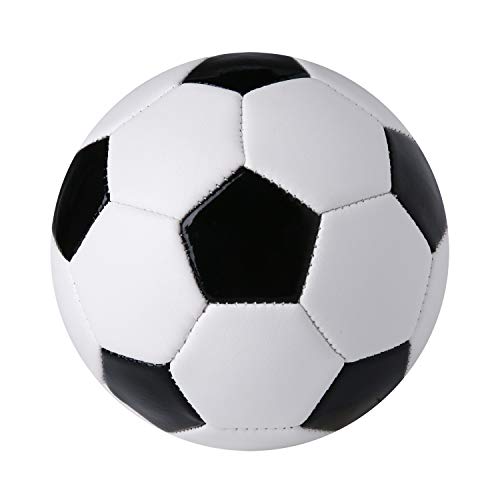Share the post "Age of Soccer Players (Best Age To Start!)"
People of all ages can enjoy playing soccer in one form or another. But there’re optimal ages for learning soccer and being competitive.
Soccer can be played by kids from the age of 2 years upwards. This depends on their development, strength, and coordination.
Let’s answer some questions relating to the age of soccer players.
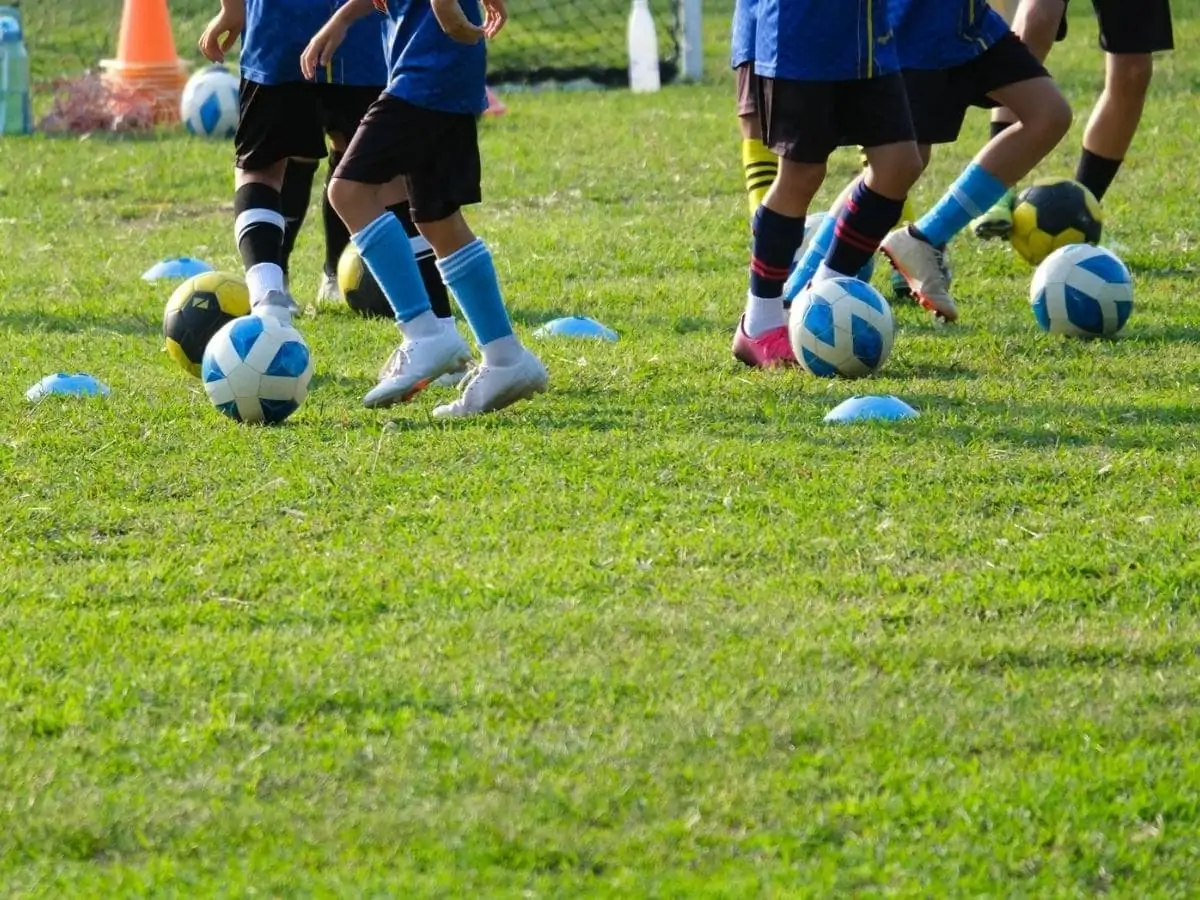
Can my 2-year-old play soccer?
Yes, your 2-year-old can play soccer if they are balanced, mobile, and enjoy chasing a ball. The focus should be on playing with the ball and kicking it.
Watch most 2-year-olds with a soccer ball; their first instinct is to grab it with their hands. Encourage kids to kick the ball – demonstrate what to do. They love to imitate grown-ups.
If the kid’s first instinct is to kick the ball, that’s a great sign for them as a soccer player. Create the right environment, and your 2-year-old can play soccer.
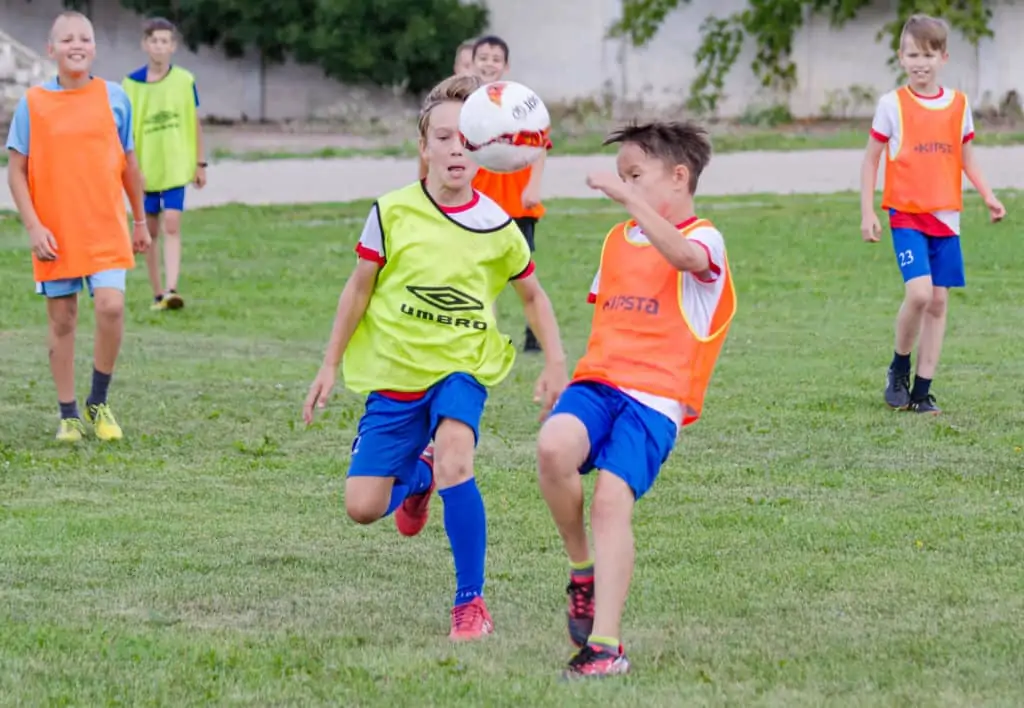
What age can you play soccer from?
You can play soccer from 2-3 years old in the basic form by kicking, dribbling, playing catch, and also catching the ball -using fun and engaging games with coaches, parents, and friends.
At this stage, the setting for the play is important. A structured or competitive environment won’t be helpful.
Playing in the park or backyard with parents is ideal. Or even with a few other kids of the same age, as long as there’s supervision. But it’s good to limit the number of kids playing simultaneously.
This allows one kid at a time to play more with the ball and develop the coordination and motor skills needed for soccer. Parents can slowly pass the ball to the kid’s feet. It’ll let them get a feel for the ball. And then the parents can encourage the kid to kick it back.
It’s also a good idea to let kids run after the ball. This will be great fun and develop an interest in chasing the ball, an important part of soccer.
After playing ball with your child, you can see the interest and then decide if they like it that much to take them onto toddler soccer groups.
You can play soccer from 2-3 years old in the correct environment.
Kids love to play ball and run around. Use a lightweight and small soccer ball – a mini ball is perfect (Amazon).
- ECO-FRIENDLY MATERIALS & SAFETY GUARANTEE: Made of durable…
- TRADITIONAL DESIGN: Classic color and panel design on soft…
- NICE GRIP & LIGHT WEIGHT make it easy to throw, work well…
- PERFECT SIZE. 6 inch TPU soccer(size 1.5), not too big or…
- Please note: Ball ships deflated. Inflation is required….
Product: Updated 2024-07-24 | Images: Amazon Product Advertising API | #ad – soccerblade.com is an Amazon Associate
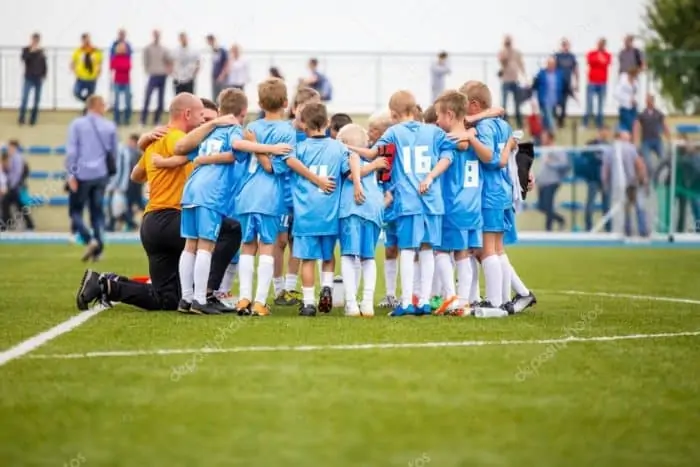
What is the best age to start playing soccer?
The best age to play soccer is when a kid is 5 years old. They have the physical development required and the social awareness to interact in this team game.
Still, the aim at this stage is for kids to have fun. Playing soccer in a team at this age allows kids to get used to playing with each other.
At 5 years old, kids can start learning the rules, too. The structure of playing in a team will help with this. But it’d be best if the rules weren’t strictly applied to this age group.
Soccer is best when it’s played for fun. Any team game should have this as its core focus. Find a team that focuses on playing with the ball, having fun, and being good sports.

Best age to start competitive soccer?
8 years old is the best age to start playing competitive soccer. Kids at this age are ready for competitive sports. They understand team dynamics, communication, and work ethic.
At this age, kids can adjust to the pressures of winning, losing, and being judged on their performance. This makes 8 years old the perfect age to start playing soccer competitively.
It’s important to note that all kids develop at different rates. Some kids will be able to deal with loss better than others. But 8 years old is a good age to introduce kids to the competitive side of soccer.
Earlier, we discussed the importance of teaching kids as young as 5 good sportsmanship. This’ll help kids deal with the competitive side of soccer as well.
Learning soccer is all about developing in stages. These stages apply to the physical side of the game, like soccer skills, and the mental side, like dealing with competition.
Both the physical and mental aspects of soccer are important for kids who compete. Aim to enroll your kid in competitive soccer at 8 years old to develop all aspects of soccer best.
This will set them up well for the stages that follow.
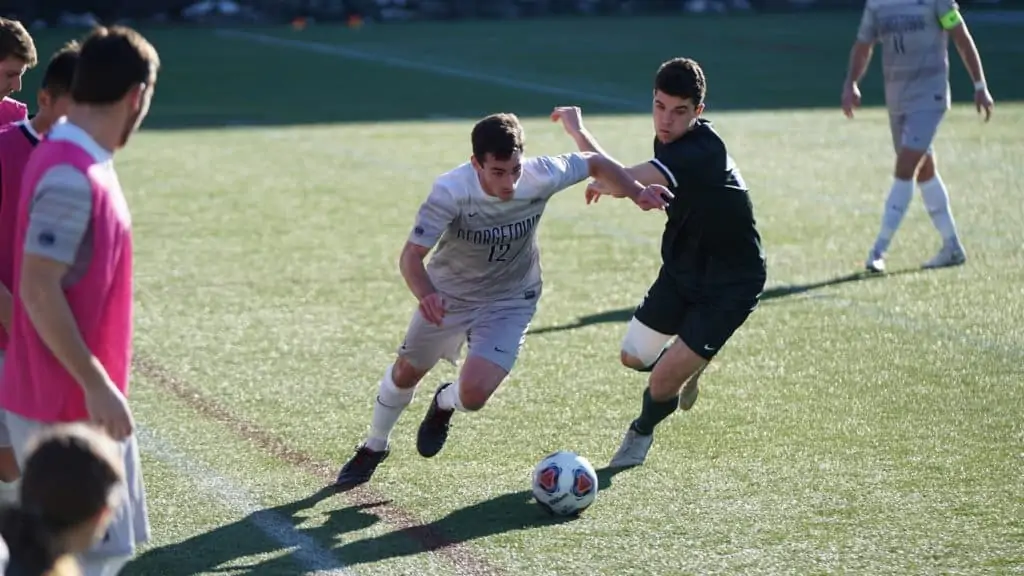
Is 11 too old to start soccer?
11 isn’t too old to start playing soccer. Your body is ready to learn the new skills required at this age. There’s a learning curve, but after a year, you’ll be like the rest of the team.
If you’re serious, practice more than your friends – at home and with private coaching. So you can develop quickly. It’s a fantastic sport to play. And you can meet new people and make new friends.
Even if you want to play competitively, 11 isn’t too old to start soccer. But you have to be dedicated when starting soccer at 11 if you want to succeed competitively.
At this age, many other kids have played competitively for a few years. So, there’s some catching up to do. The developmental stages in soccer are very important.
This means the difficulty progresses, and the skill level increases as you move through each stage. And participating in these stages is important for growth.
But 11 years old isn’t too late to start playing soccer competitively. Hard work and dedication will give you the best chance of catching up.
Having a good attitude and being a fast learner are essential.

Is 14 too old to start soccer?
You can start playing soccer at 14, If you’ve been playing other sports – your body has developed the fundamental coordination skills required.
But you’ll need to put in the hard work to catch up. If the goal is to become a professional soccer player, then at 14 you’ll need to put in the hours on the training field.
Many players at 14 years join a professional academy – but don’t let this stop you. If you want it enough and enjoy it, you can make it. So, players who only start playing soccer at 14 are far behind in becoming professional soccer players.
Being a professional soccer player is a great goal to have. But you don’t have to be a professional to play soccer. Starting at 14 means, you’ve many years of fun ahead of you. And you can still play competitively.
Here are some tips to advance your steps as a soccer player;
- Read lots of soccer articles.
- Study the game by watching the best players.
- Join a local team where you have a chance to play every week.
- Get a private soccer coach to improve your soccer skills.
- Each healthy food and look after your body.
- Prepare for training and games by stretching, hydrating, and being focused.
- Recover after soccer with stretches, rest, and a balanced diet.

Soccer development by age
Grassroots soccer development is broken into 4 age groups: Under6-8, U9-10, U11-12, and U13-19. The age groups are organized by birth year. There are 15, ranging from U5-U19, which can be viewed here.
Each developmental group has different game rules that’ll be outlined below.
U6-8
Field and goals;
This age group plays on a smaller field, length 25-35 yards and width 15-25 yards. And the goal size is smaller too, height 4 feet and width 6 feet.
Players and rules;
The games are played with 4v4 players, and there’s no goalkeeper. Each game consists of 4 sections that are 10 minutes long. No offside rule applies to these games.
Skills;
- Teamwork
- Passing
- Shooting
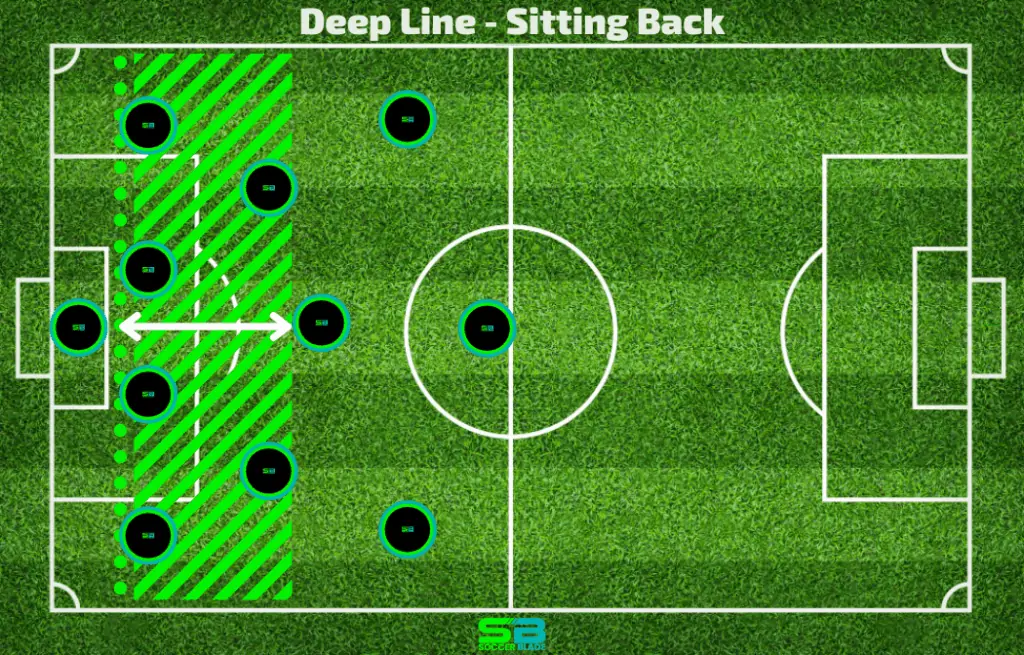
U9-10
Field and goals;
The field is larger in length 55-65 yards and width 35-45 yards. The goal size is 6.5 feet high and 18.5 feet wide.
Players and rules;
This age group plays games of 7v7 players with a goalkeeper. There are 2 halves of 25 minutes each, and the offside rule applies.
Skills
- Movement as a team
- Attack and defend together
- Build-up play to attack
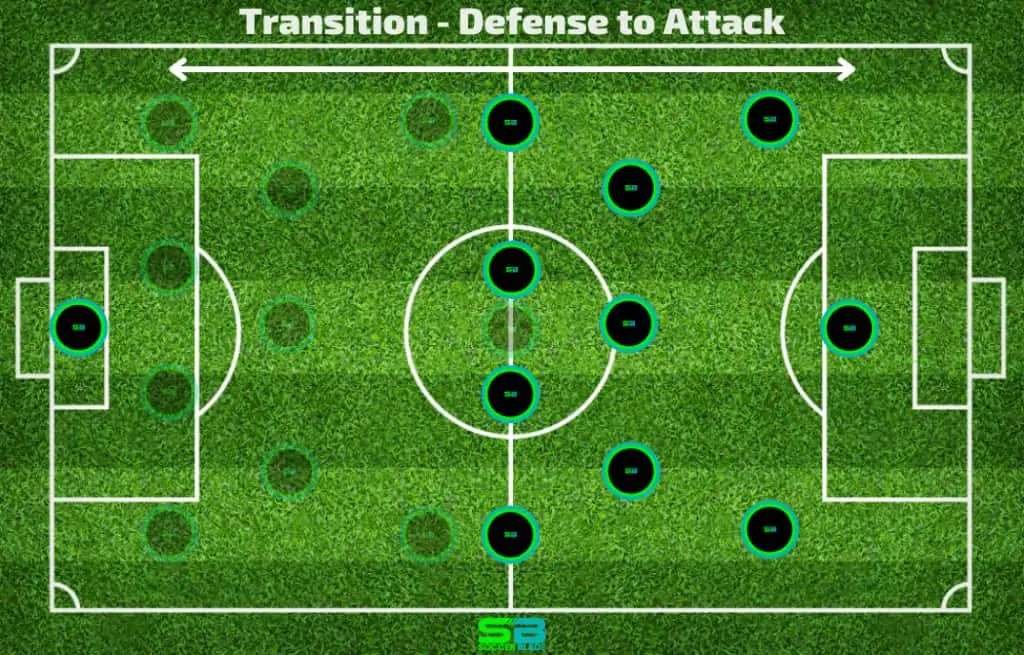
U11-12
Field and goals;
This age group plays on a field with a length of 70-80 yards and a width of 45-55 yards. The goal is 7 feet high and 21 feet wide.
Players and rules;
Games within this age group are 9v9 players and include a goalkeeper. Each half is 30 minutes long. The offside rule applies.
Skills
- Two touch passing
- Pass and move
- Through balls
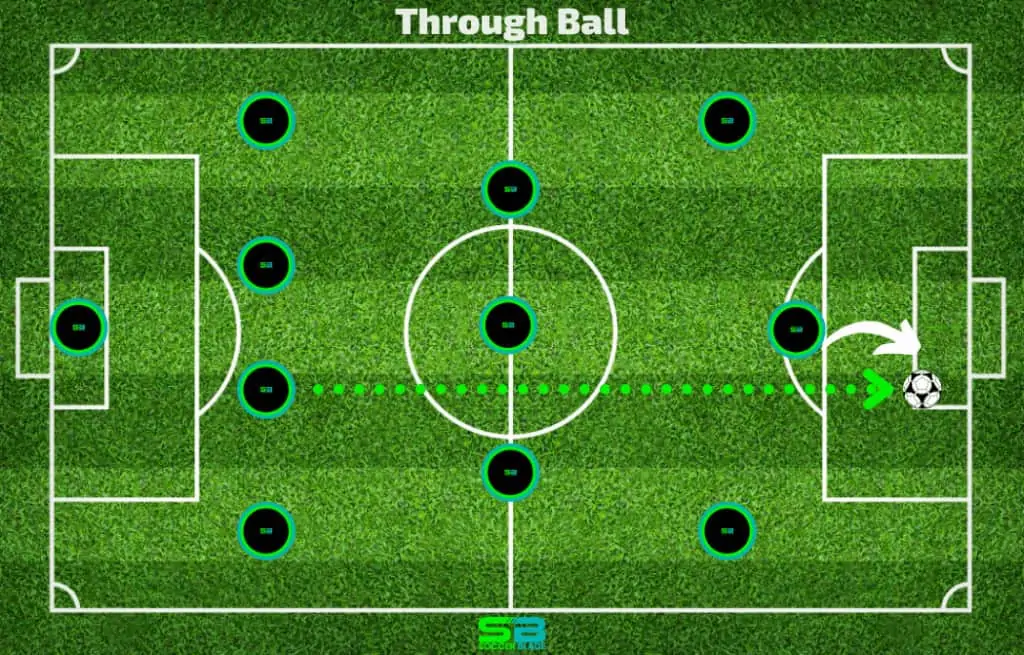
U13-19
Field and goals;
Players in this category play on a standard field from 50 yards wide, and from 100 yards long, with a standard goal size.
Players and rules;
The games are 11v11 players with a goalkeeper. The halves are 45 minutes long, and the normal rules apply.
Skills
- Offside trap
- One-Two’s
- One-touch passing
- Long balls
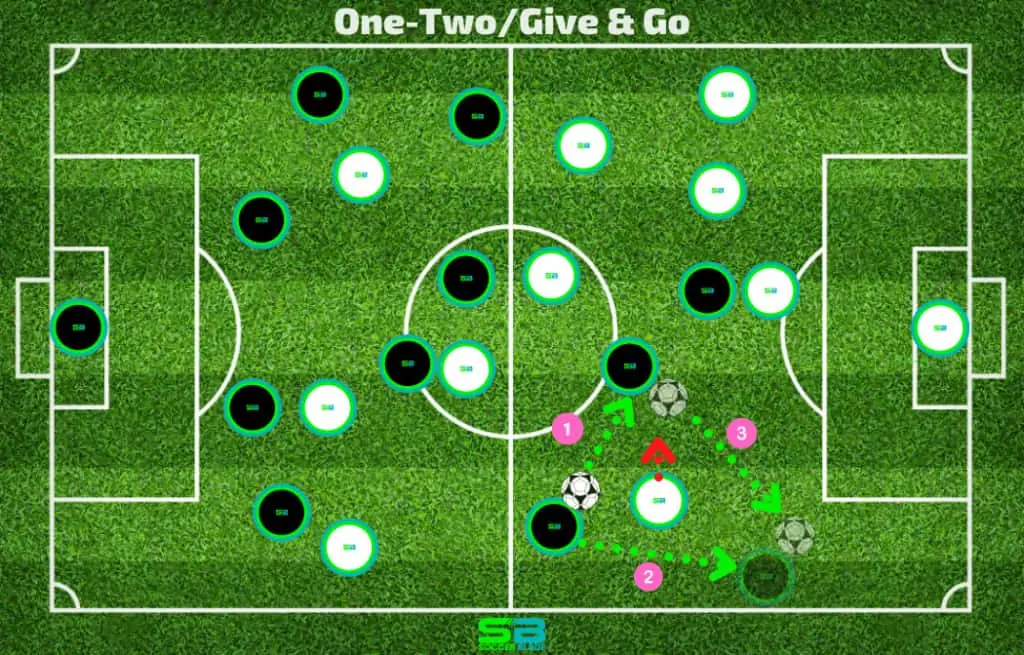
Play-Practice-Play
Within these frameworks, there’s a Play-Practice-Play philosophy in US grassroots soccer. This is set up to create a fun, safe, and challenging environment for the players.
- The first Play focuses on small games overseen by the coach. The main goal is to have fun at this point in a safe, supervised environment.
- In the Practice stage, the coach takes the kids through targeted learning. This gives kids experience in training sessions.
- The second Playstage is an actual game. This is important to give kids an experience in soccer matches. It’s a good opportunity to apply the practice to a real-game situation.
Soccer development by age shows the importance of development in soccer, as previously mentioned.
There’s more to learn in each developmental stage, and there are more challenges for kids as they progress. This relates to the physical and mental sides of soccer.
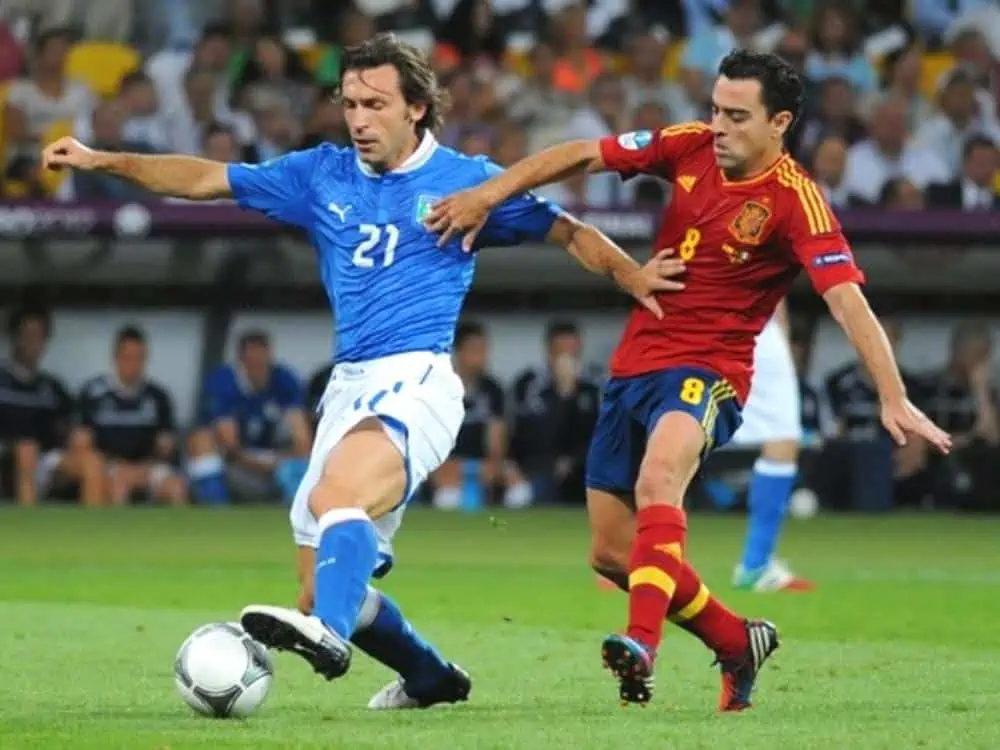
What age do you stop playing soccer?
There’s no set age to stop playing soccer. Japanese soccer player Kazuyoshi Miura still plays professionally at the age of 54. He may be an outlier, but players like Paolo Maldini and Francesco Totti played at a high level into their 40s.
On the other hand, some of the best players in the world retired early. Take Marco Van Basten, for instance. The Dutch international was voted the best player in the world three times. But he retired at 28 years old because of an injury.
Listening to your body is the best advice regarding what age you should stop playing soccer. It’s important to act on the signs your body is giving you. No matter what age you are, if you keep getting injured, especially a recurring injury, it could be time to stop playing soccer.
You have to think of the future as well. An injury might be manageable when you’re 30, but what about when you’re older? You have to look after your body.
If you’re playing soccer and getting injured regularly, it’s best to seek the advice of a medical professional. It could be your body telling you to stop.
Listen to your body and medical professionals to tell you at what age you stop playing soccer.
Share the post "Age of Soccer Players (Best Age To Start!)"
Joel is a seasoned soccer journalist and analyst with many years of experience in the field. Joel specializes in game analysis, player profiles, transfer news, and has a keen eye for the tactical nuances of the game. He played at various levels in the game and coached teams - he is happy to share his insight with you.

